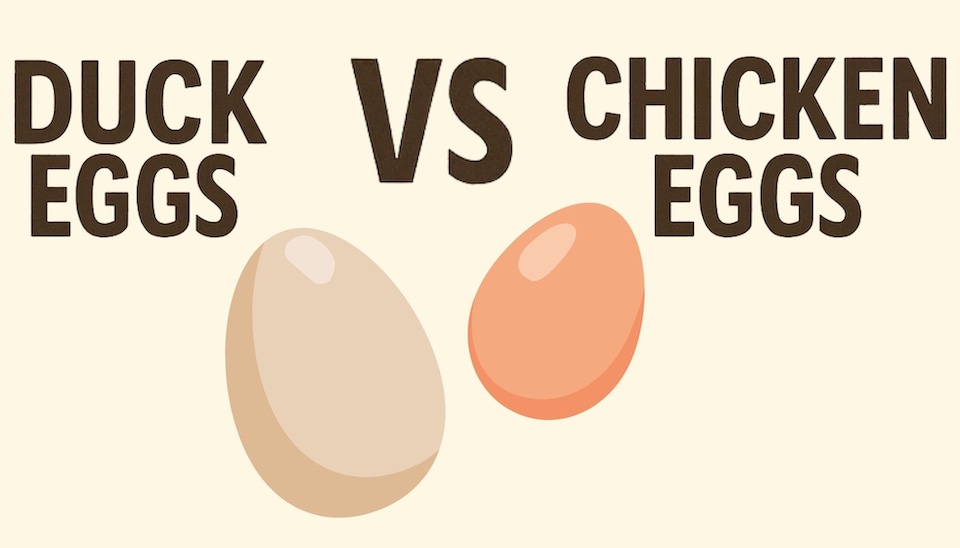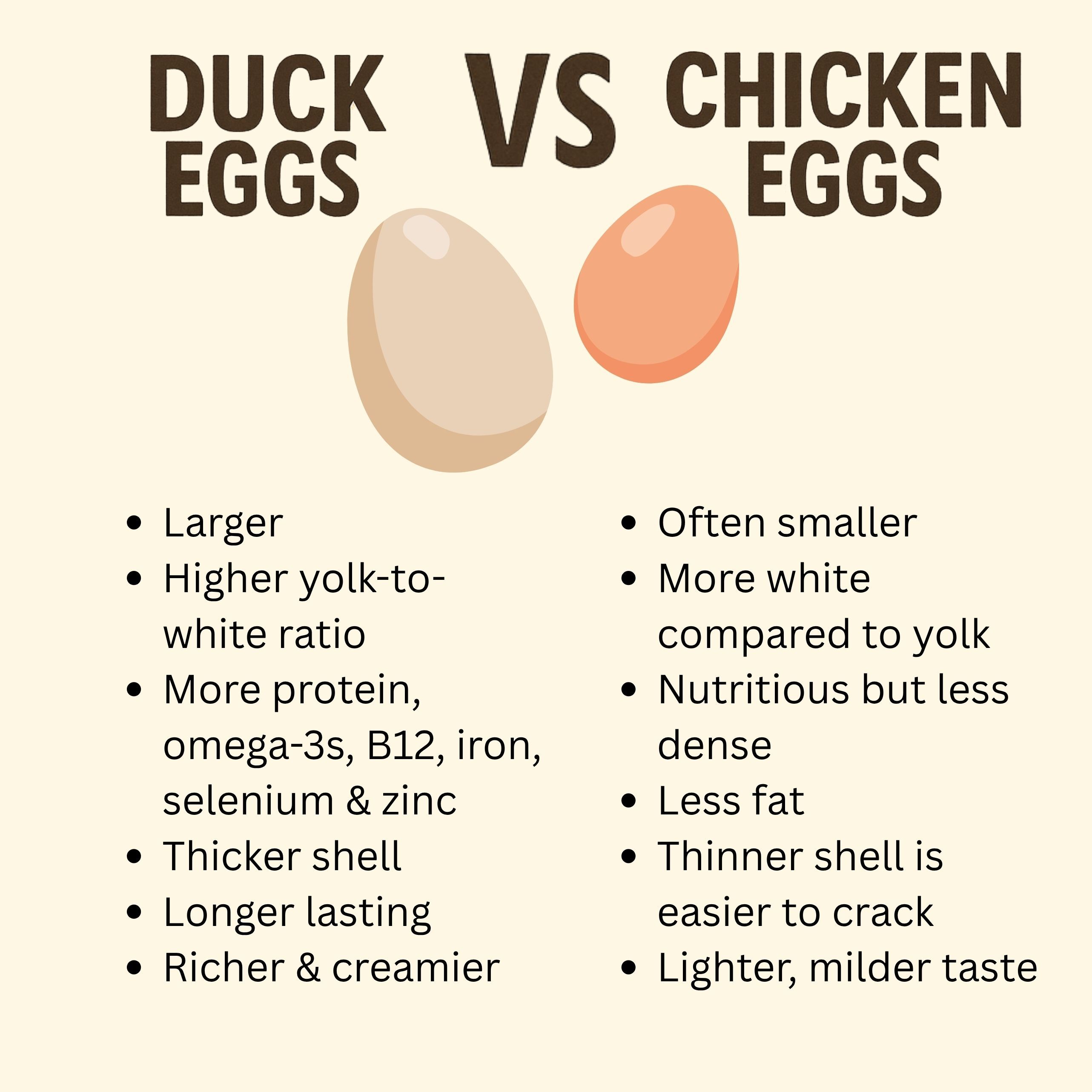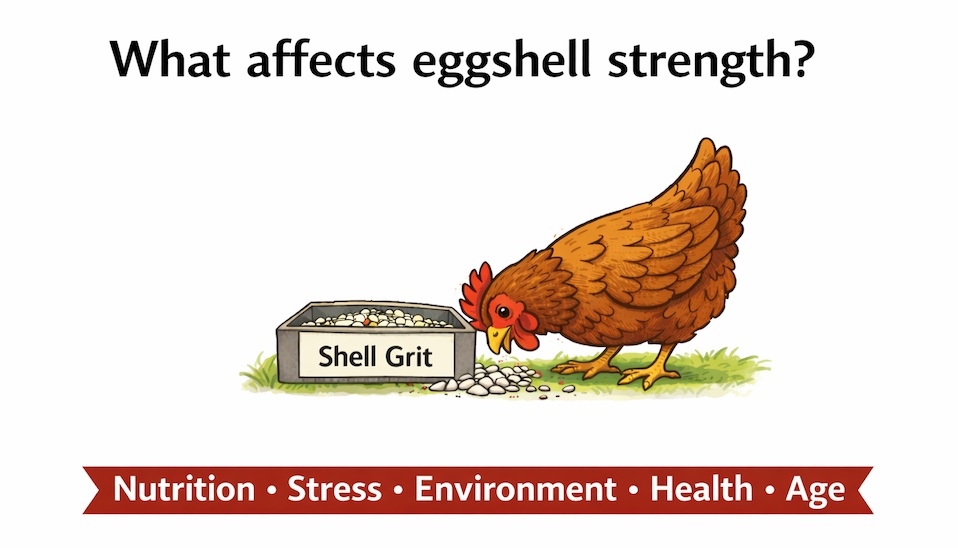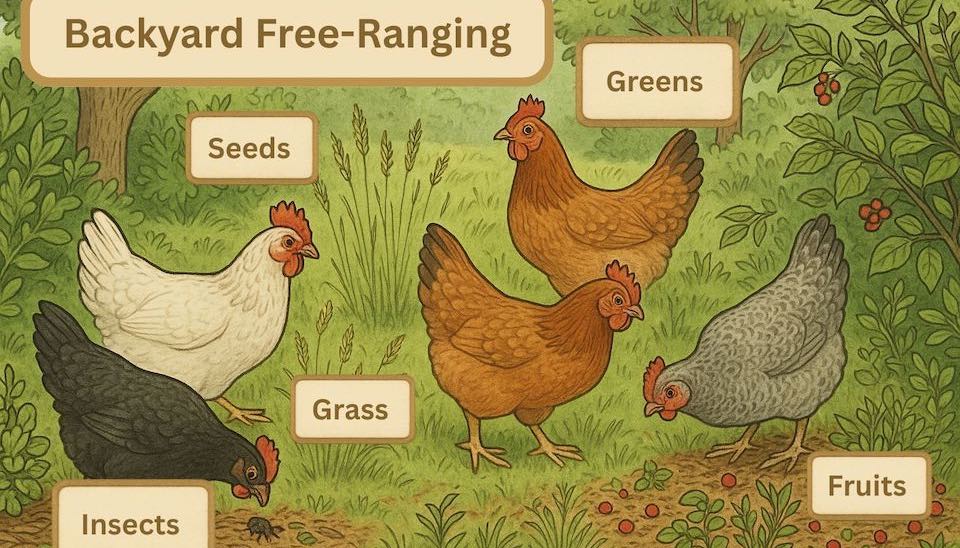Recipe: Cooking with Duck Eggs
Cooking with Duck Eggs: Tips, Substitutions and How to Fry the Perfect Duck Egg
Have you ever considered keeping ducks? If you have the space, ducks can be a fantastic addition to the backyard flock: friendly and quirky, they make great pets and some breeds can be almost as productive as chickens! But even experienced cooks can be apprehensive about cooking with duck eggs.
It’s true, duck eggs are different from chicken eggs. But that shouldn’t put you off. If you treat duck eggs correctly, they are a true kitchen treasure. Richer in flavour, higher in nutrition, and with baking properties that often outshine chicken eggs, duck eggs can elevate everyday recipes. Whether you keep ducks or have decided to try some eggs from the farmers’ market, here’s everything you need to know about cooking with duck eggs.
What is the difference between duck and chicken eggs?
Duck eggs are often larger than chicken eggs, depending on the breed. Even similar-sized duck eggs have a larger yolk than an equivalent chicken egg, with a higher yolk-to-white ratio. It is this larger yolk that makes duck eggs richer and more nutritious than chicken eggs.
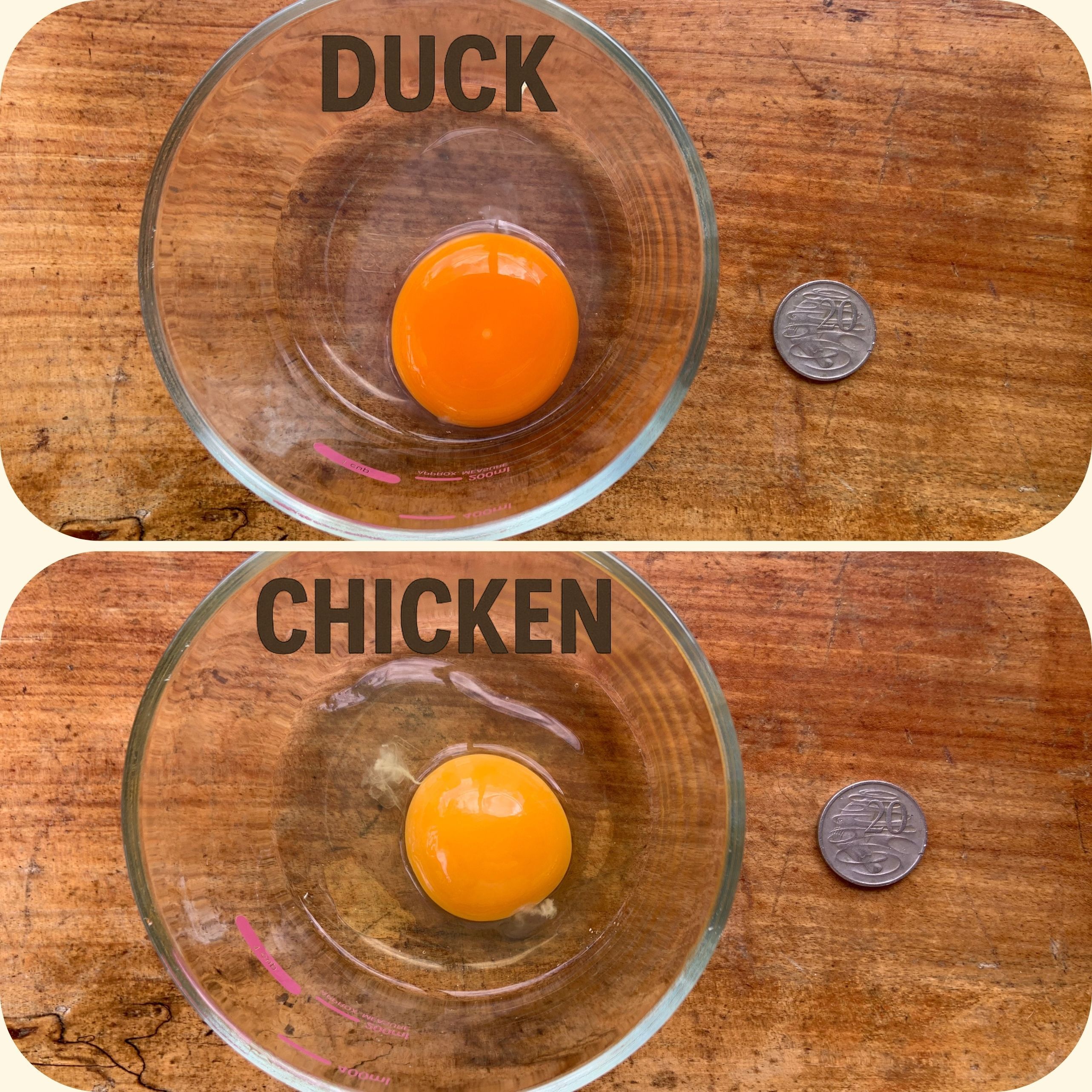
Duck eggs have a much richer, creamier taste than chicken eggs. They have a higher fat and protein content, along with more omega-3 fatty acids, vitamin B12 and minerals such as iron, selenium and zinc.
Duck eggs also have a thicker shell than chicken eggs, which means the eggs typically last longer.
In addition, because the protein structures in duck eggs are different to chicken eggs, some people who are sensitive to chicken eggs can eat duck eggs. However, the reverse is also true and some people are sensitive to duck eggs.
How to cook with duck eggs
What is the trick to cooking with duck eggs?
Some blogs say that duck eggs can be used just like chicken eggs. And while it is true that you can replace chicken eggs with duck eggs in almost any recipe, this can result in disappointment. It is important to remember that duck eggs have a richer flavour than chicken eggs and a different yolk-to-white ratio.
Cooking duck eggs on their own
Duck eggs are lovely and rich. They make creamy scrambled eggs and are delicious boiled, poached or fried. In fact, the large, jammy, richly-flavoured duck egg yolk is far better than a chicken egg yolk for any dish where you want a runny yolk, such as pastas, salads, roast vegetables or an eggs benedict!
A common complaint about duck eggs is that they are rubbery, or that the whites are hard. But this only occurs when you treat duck eggs like chicken eggs. The trick with duck eggs is that they need to be cooked gently. If you cook them gently, they are never rubbery!
How to fry the perfect duck egg
Because duck eggs require more delicate treatment than chicken eggs, frying them too quickly is often where home cooks go wrong.
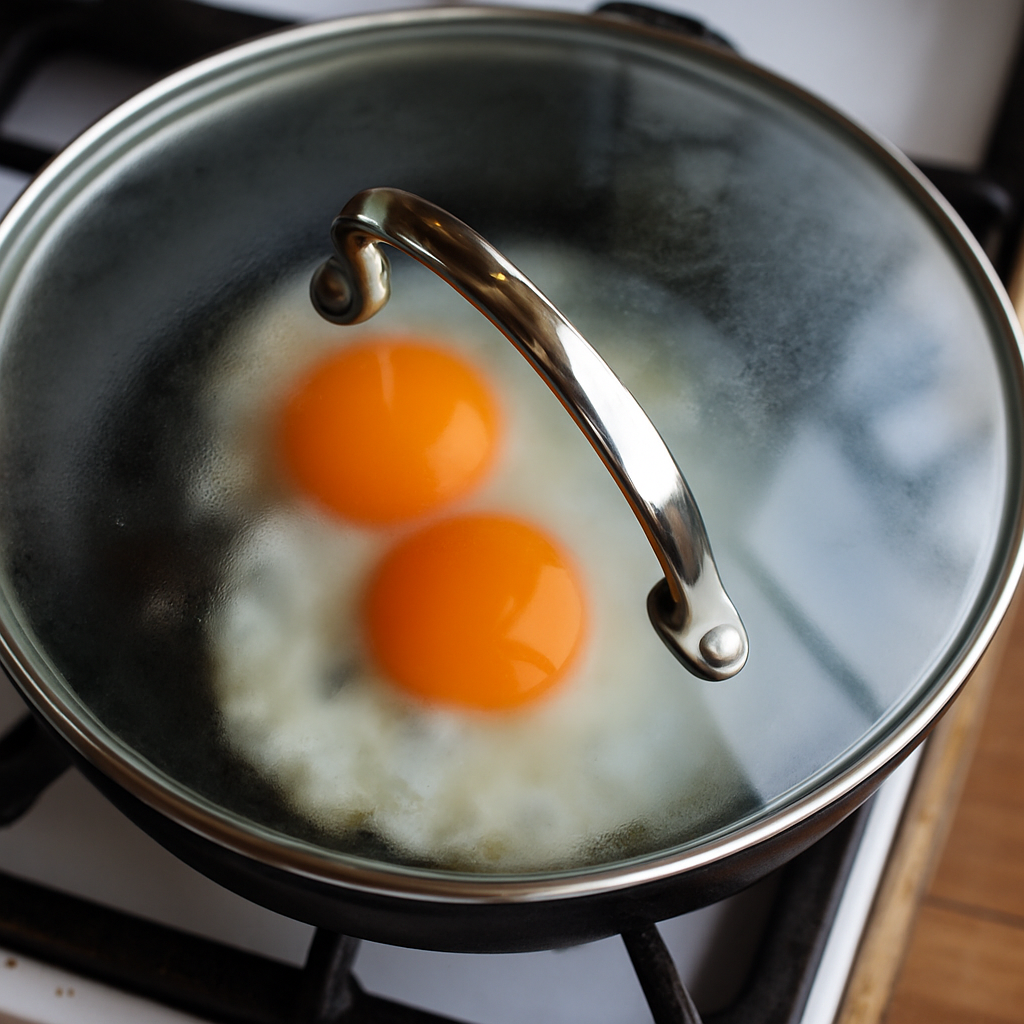
To fry the perfect duck egg:
- Heat a heavy-bottomed pan with some oil or butter on medium-high heat.
- Once the pan is hot, add your duck eggs.
- Immediately turn the heat down to low and place a lid over the pan. The lid doesn't need to fit perfectly.
- Remove the eggs from the heat as soon as the white is set. We think the best fried duck egg is sunny-side up, but you can flip your eggs if you want, just don’t over-cook!
Scrambled duck eggs
Duck eggs make delicious scrambled eggs!
For the creamiest scramble you’ve ever eaten, almost like an egg custard, use the cold pan method.
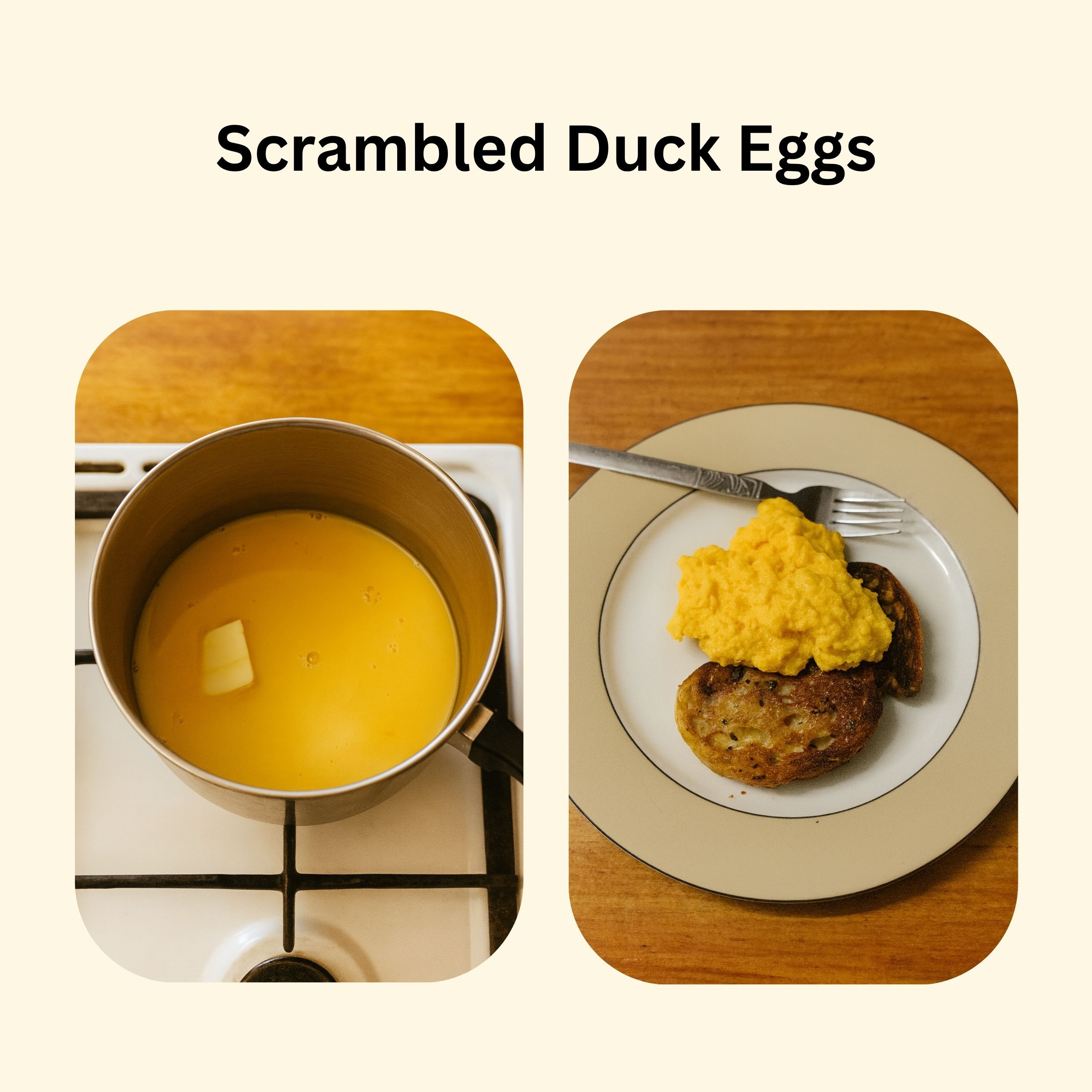
- Break your eggs into a bowl and whisk well. Ensure the whites are fully broken up – duck egg whites tend to hold together more firmly than chicken eggs.
- Season the eggs with salt and pepper. Fresh herbs like chives or parsley are also a nice addition, as is a soft goats cheese.
- Put the scrambled egg mixture into a cold pan with some cold butter.
- Cook the mixture over a low heat. For custard-like eggs, stir constantly, scraping the bottom of the pan with a spatula or flat-bottomed scraper. For a creamy scramble with a texture more like what you expect of scrambled eggs, stir less frequently, allowing the eggs to set into larger pieces.
- When the eggs have reached a soft-set, they are done.
Boiled duck eggs
How many ways are there to boil an egg? No matter what method you prefer for chicken eggs, the best method for duck eggs is to start with cold water for gentler cooking.
When it comes to peeling, duck eggs can be even more difficult than chicken eggs! Use eggs that are at least 2 weeks old and avoid plunging the eggs into cold water; while this stops the cooking, it makes duck eggs harder to peel. Letting the eggs air-dry until they can be handled and adjusting cooking times as below is the best option for easier peeling.
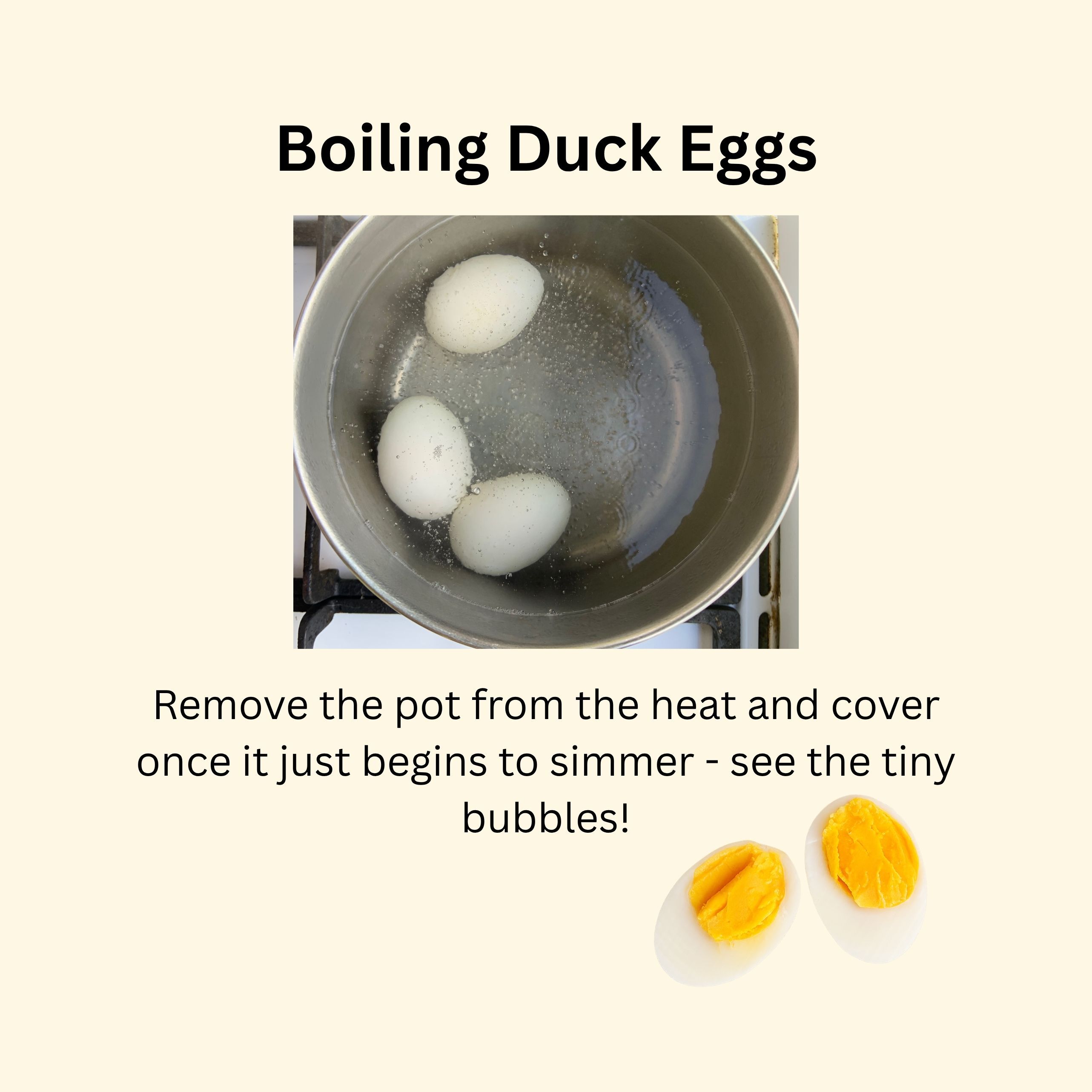
- Use a heavy-bottomed pan with a tight-fitting lid. Add eggs and ensure they are fully covered with cold water.
- Place the pot over medium-high heat, covered.
- Check regularly and when the water barely reaches a gentle simmer – the bottom of the pan should be covered with tiny bubbles and there should be some movement – remove the pot from the heat, leaving the lid in place. The eggs will cook in the residual heat of the water.
For soft-boiled eggs to eat straight away, remove the eggs from the water after 3-5 minutes and eat immediately.
For soft-yolked eggs for peeling, leave eggs in the water for only 2 minutes and air-dry until they are cool enough to peel.
For hard-boiled eggs, remove eggs from the pot after 5-7 minutes. Allow the eggs to air-dry until cool enough to handle.
Cooking time will vary depending on the size of the eggs. The duck eggs we used were a similar size to large chicken eggs (see the image below) and were cold from the fridge.
Poached duck eggs
Poach duck eggs as you would chicken eggs, but ensure the water is at a low simmer – little bubbles should be visible on the bottom of the pan. Duck eggs take about 3 minutes for a semi-soft yolk and should be eaten immediately or placed into an ice-bath to stop the cooking and avoid rubbery whites.
Using duck eggs in recipes
Duck eggs are famous for baking. Any recipe that calls for eggs can use duck eggs, and the larger yolks and higher protein and fat content have other benefits too:
- The extra protein helps cakes and muffins rise higher
- Baking turns out fluffier and moister
- The yolk adds creaminess and richness to custards, cheesecakes and quiches
- Cookies, slices and brownies have a chewier, richer texture
- Pastries and breads are more golden
- Although more difficult to whip, the egg whites make a stiffer meringue that holds shape better
How to substitute duck eggs for chicken eggs in a recipe
Duck eggs can be used anywhere chicken eggs are used, but there are a few tricks that will help you get the best results.
Quantity
Because duck eggs are often larger than chicken eggs, you will get the best result if you go by weight, rather than just substituting one duck egg per chicken egg.
That said, some recipes, like quiches and cheesecakes, will be more forgiving than others. But in recipes that require the right amount of ingredients to rise in the oven, it is important to measure your eggs. Even with biscuits and slices, which can be very forgiving, if you just substitute duck eggs for chicken eggs without weighing, you will find yourself adding more flour to make up for the extra liquid!
Duck eggs can vary in size. For example, the last duck eggs I bought from a local farm had massive yolks, but the eggs themselves weren’t that much bigger than my, admittedly large, Welsummer chicken eggs.
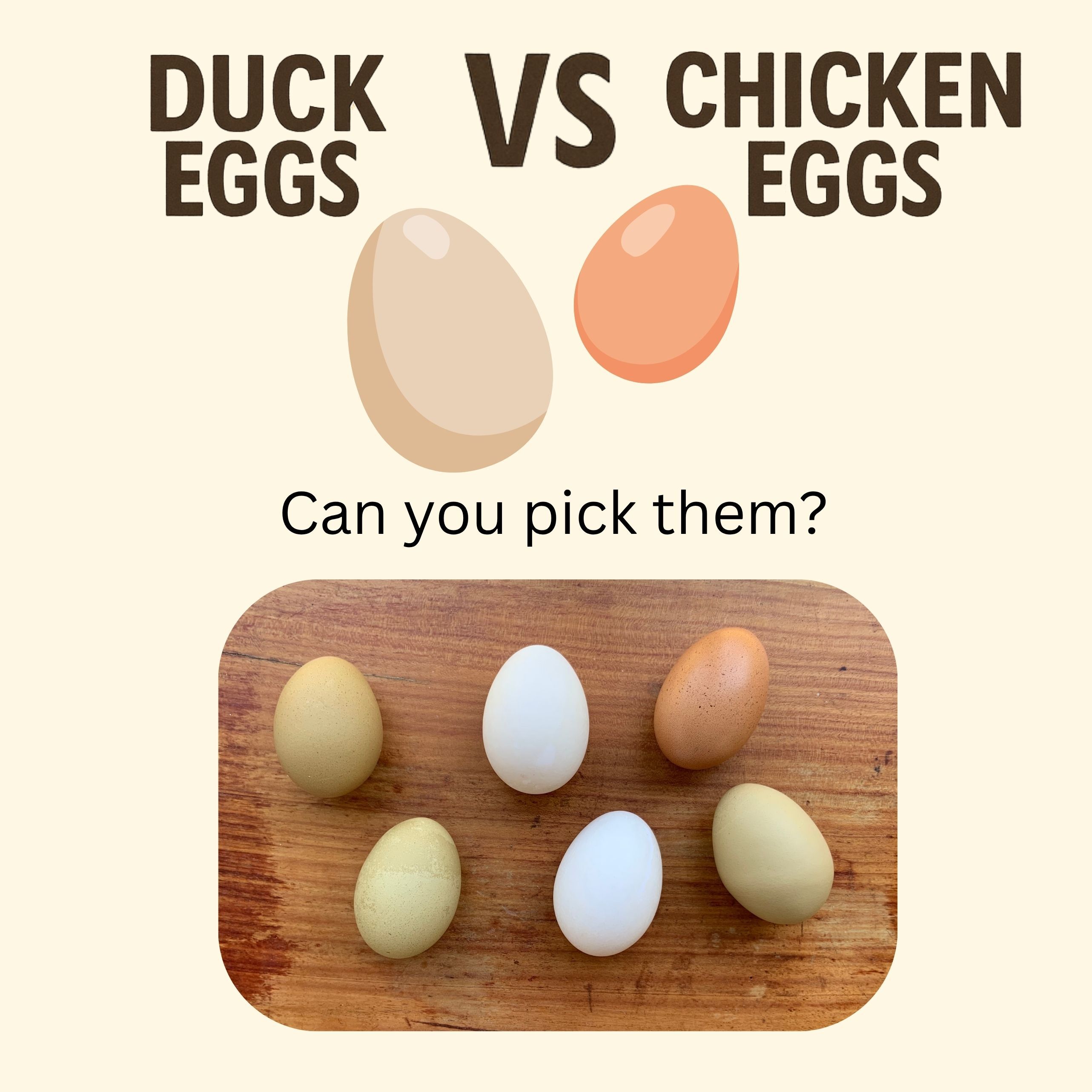
While you are best off weighing your duck eggs (without the shell), because size varies so much, if you want to approximate calculations, you can assume that for Australian recipes:
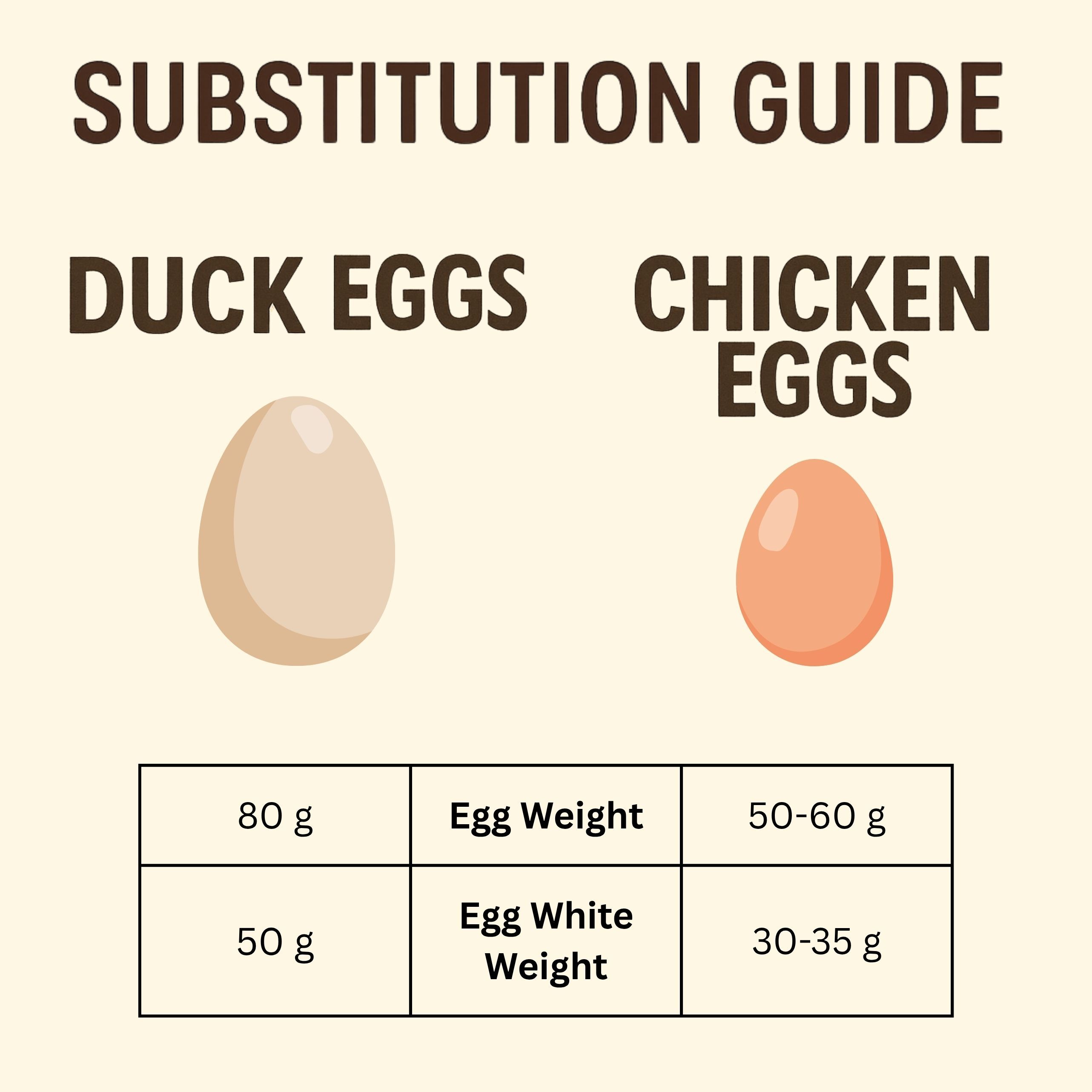
Other tips for cooking with duck eggs
If you are substituting duck eggs one-for-one with chicken eggs, cook egg-based recipes like quiches and frittatas for slightly longer to ensure they set. For flour-based recipes like cakes and other baking, increase the oven temperature by 5-10 degrees and add slightly less liquid to the recipe or adjust the dry ingredients.
When baking with duck eggs, watch baking carefully as cakes and other items may brown more quickly and need slightly less cooking time. Doughs made with duck eggs can benefit from resting 10-15 minutes before cooking to improve texture.
When making a cake based on beaten butter and sugar, be careful when adding duck eggs. Because of the higher fat content, duck eggs can curdle the batter. Adding a little flour (1-2 teaspoons) with each egg can prevent curdling.
If making meringues or any other whipped egg white dessert with duck eggs, add some cream of tartare to help with stability. A little vinegar, lemon juice or baking soda added before whipping can also help the duck eggs whip up more easily.
For custards and sauces, stir gently and cook slowly, as duck eggs can thicken and cook more quickly than expected.
Recipes that shine with duck eggs:
- Anything requiring a jammy yolk to mix through, like pastas, salads and breakfast dishes
- Cakes and muffins – moist, soft and rich
- Quiches and frittatas – creamier, more decadent flavour
- Custards and puddings – extra smooth and silky
- Meringues – Tall, glossy and stable
- Gluten-free baking – Helps baked goods hold their shape better and makes them fluffier
Why try cooking with duck eggs?
If you keep ducks alongside with chickens, you’ll find that duck eggs are not only a delicious change but also a versatile ingredient for your kitchen. Their richer taste and baking benefits make them perfect for home cooks who love experimenting. And if treated gently, they can be even better than chicken eggs for simple uses like frying and scrambling.
Rachael at Dine-A-Chook Australia

